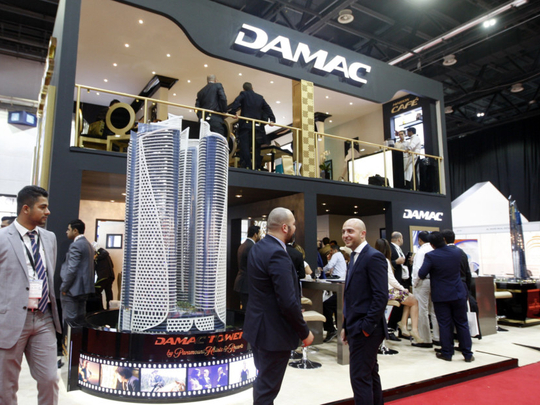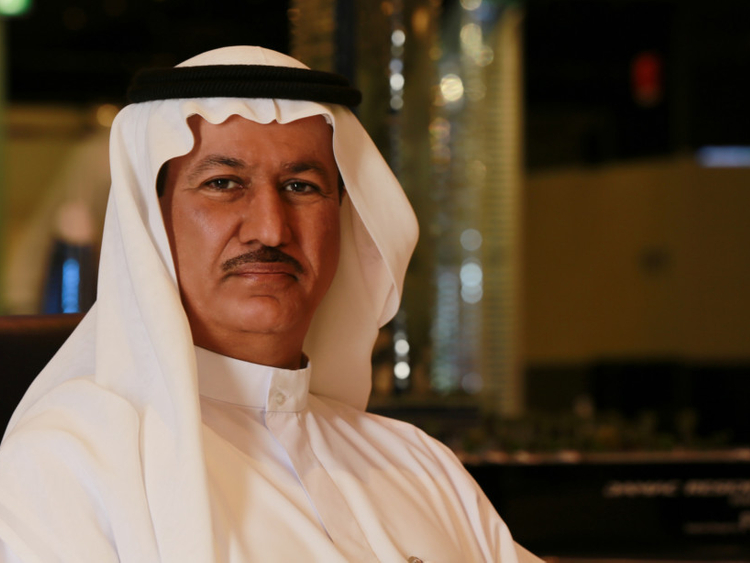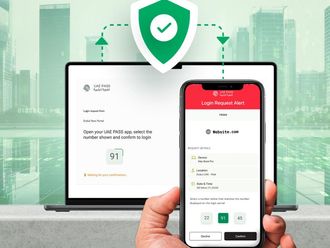
Dubai: Damac Properties might consider opportunities in “gateway cities” such as Los Angeles or New York in the US as its next step into international markets. It was in the middle of last year that the Dubai-headquartered developer announced a project in London, its first outside the Middle East since 2008-09.
It is also in the market for additional upscale projects in London, Damac’s Chairman Hussain Sajwani said. “Why would anyone think that our presence in London is a one-off and just to show the world we are there,” Sajwani added.
“After the global financial crisis, we decided not to invest further in the Middle East markets, due to political reasons. Instead, we shifted focus outside the region.
“There will be multiple projects in London and the aim is to become one of the serious players in that market. We have such a significant database of 30,000 high-income customers from all the properties we have sold in Dubai and the Gulf.
“Many of them bought into our first London project. And there are many who are doing so at the roadshows we have held and had never even heard of Damac before.
“The next step could take us to gateway cities in the US — I would love to do that.”
The Chairman confirmed that future London projects would be done on its own — “Joint ventures involving us financing is not on the agenda. If other developers are involved, it will be limited to the land they might be holding.”
Outside the UAE, Damac has delivered projects in Saudi Arabia and Qatar and has further projects in fairly advanced stages in Saudi Arabia, Qatar, Lebanon and Jordan. The numbers are stacking up — more than 15,500 homes have been delivered and there are another 40,000 plus being built or shortly making the transition from the drawing board. And these will continue to be in the premium space.
Not surprising given his association with fashion uber-labels Fendi and Versace, Sajwani has no intention to get distracted by market noise over affordable homes and how it could fuel Dubai’s real estate in the medium-term.
“Our strategy to date has worked well for us — while no one was building in 2010, we had 16 cranes up in Business Bay,” he said. “We have been ahead of the curve.
“I don’t see any need to change our profile or strategy — Damac is in the S-class as a developer. I don’t want to go below that.
“With the strategy we have, Damac is looking at profits and a strong cash flow for the next five years and more. The only change will be in the mix of products — such as offering smaller units or building villas that are not on high-priced land.
“Then again, we have just launched [Aykon City] at a triple A location on Shaikh Zayed Road. That’s because we are sure of the strength of the Dubai market and not worried about the soft landing it has had.”
Distance of time may have helped, but Sajwani says the 2009-10 crisis may have been the “best thing” to have happened to the industry sector. “It taught a lot of lessons to all the parties involved, including the government, regulator, developers, providers of capital, both debt and equity and investors ... we all have learnt a great deal. Damac has become a highly transparent company and done things that have forced others to follow.
“Ahead of going public, I spent a lot of time with bankers and lawyers who explained the difficulties involved in doing so, especially the internal changes. To my surprise, many of the changes they wanted were already in place. There have been other changes we went on to add, such as having an independent member on the Board (of Directors).
“We went in for a London Stock Exchange listing [in 2013] and that requires a greater level of disclosure transparency. Only after meeting those did we shift (the listing) to Dubai in early 2015.”
As to what he misses from the days when Damac was privately owned, Sajwani said: “Not much has changed. If at all, I find myself spending more time with investors — often with eight meetings a day whilst on international road shows.
One change that could yet take place is build a portfolio offering possibilities for a recurring income on its cash flow. To date, Damac’s model has steadfastly pursued sales rather than rental generation.
“The plan is on the table for recurring income possibilities … we will need to get everybody on board for such a move,” Sajwani said. “But everything has a timing — I am not concerned whether other developers did it earlier.
“We have to look at the company’s land bank, overall strategy, cash flow before a decision is made one way or the other. There should be a proper time … I don’t believe in having lunch early.”
With Trump (International), it’s all business for Damac
Dubai: Whatever be the shrill nature of Donald Trump’s campaign rhetoric, Hussain Sajwani is not giving ear to it. His stance on the subject remains clear — it’s a deal Damac has done with the Trump Organization.
“That deal would help us create a destination of the two golf courses we are creating [in Akoya by Damac and Akoya Oxygen, respectively],” said Sajwani. “As far as the courses are concerned, we have no doubt that the Trump Organization will make them nothing less than among the best in the world. I am highly impressed with what T.O. brings to the deal. I am very happy with the relationship.
“As for the politics, I’m not into it and don’t wish to be. Everyone is free to have his own politics and it’s got nothing to do with my business.”
The first course and the clubhouse (both managed and bearing the Trump name) are scheduled for a Q4-16 or Q1-17 opening. The second will tee off in 2018.












